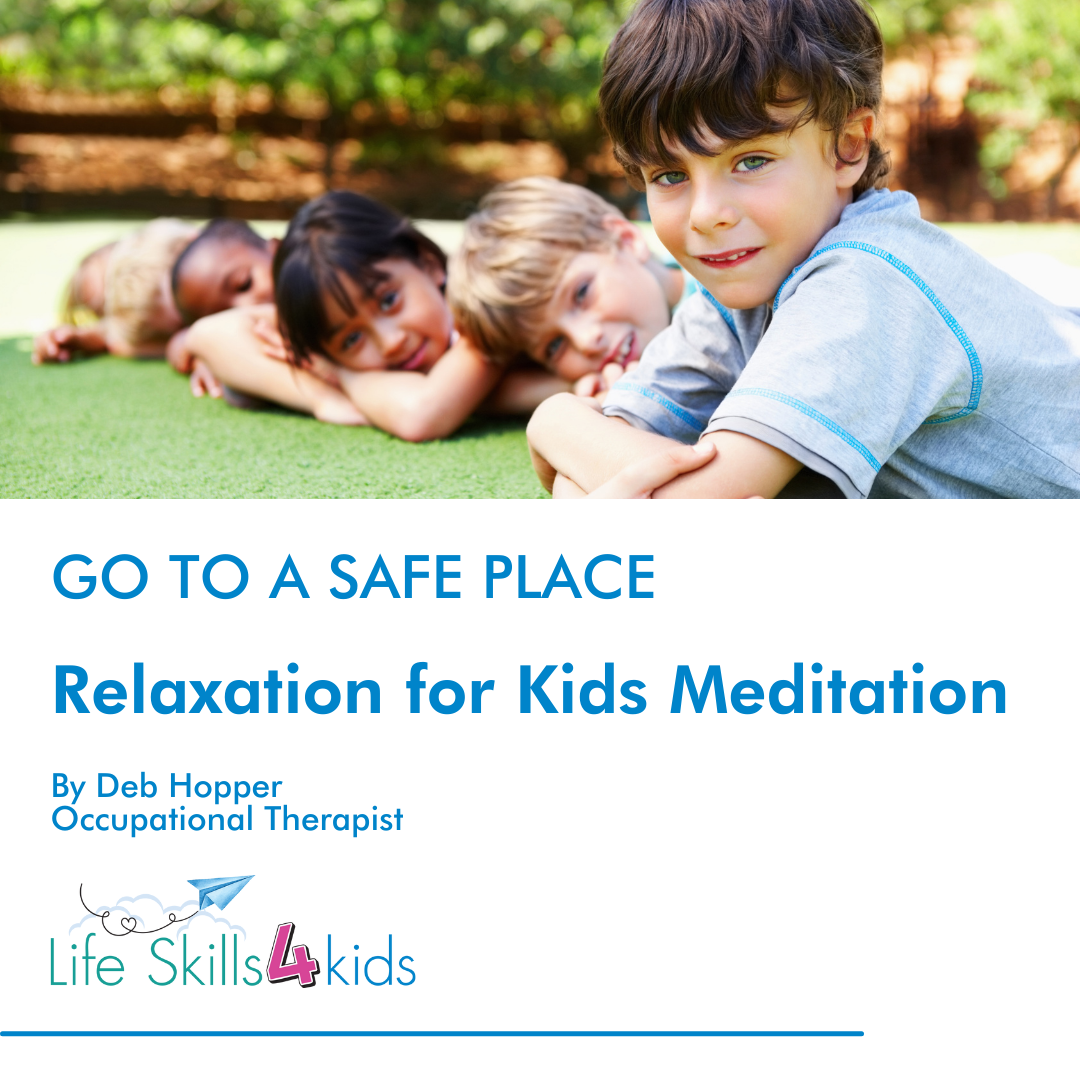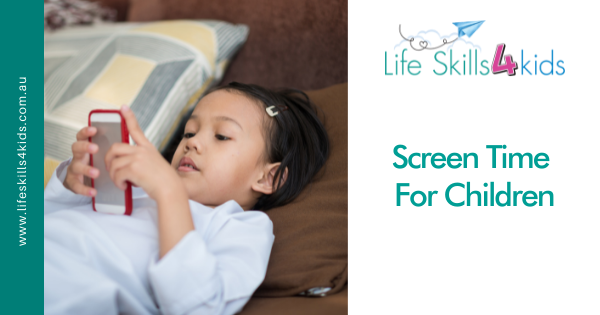Screen Time for Children
By Deb Hopper
This article was published in the Great Health Guide digital magazine – GreatHealthGuide.com.au

Screen time for children… It’s one of those tricky topics to deal with from day to day. There are such mixed messages in the media about how much screen time is appropriate, healthy or even just OK for children to have.
Screen time has some valid and handy functions for both children and adults, so let’s not have all the thumbs down against screen time. The key is to have our eyes open, have clear minds and be open to how society seems to being pulled along and sucked into more and more screen time.
It’s time to take stock and think clearly about WHY we should bother to think about this issue. Oh, and just for the record, we are talking about managing screen time for both children AND adults. It’s time to look up from the screen and look in the mirror and be honest, for our children’s sake.
7 Reasons Why We Should Bother Managing Screen Time-
- Life is busy, and screens are a time waster.
Have you ever drifted into Facebook, Pinterest, eBay land, then taken a look at the time and realised 5, 12, 20 minutes has disappeared? Life is busy, and we are fritting away so much time being distracted on our screens.
- Social disconnection threatens our families.
We can be on the couch swapping attention between our hand held screens and the TV for hours and not connect with our family in the same room. We can enter the house after work/ school and not have any fights or disagreements, but also no relationship building conversations. Both of these are leading to rapid social disconnection in our families.
- Time spent on screens is time not being active.
We are fighting the battle of the bulge and obesity is threatening all ages. It’s time to swap screen time for a walk around the block, perhaps without our phones or pod casts. Give your brain some time to stop and be.
- Contrary to our habits, screen time is not relaxing and stress reducing.
Zoning out with a screen may feel like relief after the pressures of the day, but if you really want to relax and rejuvenate your mind, take a look outside, watch the sunset, go for a walk on the beach or stare at a fish tank.
- Too much screen time is linked to difficulties in getting to sleep.
In a study of 10,000 16 to 19-year-olds, researchers in Norway found that the longer a young person spent looking at an electronic screen before going to bed, the worse quality sleep they were likely to have. Having 1 – 2 screen free hours before bed supports a better sleep. http://www.independent.co.uk/life-style/health-and-families/health-news/too-much-exposure-to-smartphone-screens-ruins-your-sleep-study-shows-10019185.html
- Screen time opens up the possibility of bullying for children and teenagers.
It’s much easier to post negative opinions on social media than to bully someone face to face, but the effects on children can be just as devastating.
- As adults stuck to our screens, we need to think hard of the example we are teaching our children.
What do children think of our distraction on screens? Often they are frustrated as they can’t get the attention they crave (and deserve). Are they seeing screen times as a coping strategy for adults? Will they copy our example and be sucked into even more social disconnect?
Which of the above 7 reasons speaks closest to your heart? Are these risks enough motivation for you to consider changing your screen time habits? Now, if you are reading this on a screen, how long have you got until bed time? Is it time to disconnect, have a cuppa and reflect on what might be?
Deb Hopper is passionate about helping children achieve their potential. As a practicing Occupational Therapist at Life Skills 4 Kids in Forster on the NSW Mid North Coast she understands the day to day struggles that children, parents and teachers face.
She is passionate about empowering parents and teachers to understand emotional regulation and practical strategies to help children and is often called upon for media comment. Deb draws on over 18 years’ experience as an Occupational Therapist working in mental health and paediatrics.
Deb is the co-author of the CD Sensory Songs for Tots, and author of the soon to be released book Helping Children Soar in a Post Digital World: Teaching Kids to Stress Less. She also presents keynote presentations and workshops. For a chapter of her upcoming new book, join our newsletter at www.lifeskills4kids.com.au To book an appointment call 02 6555 9877.
To check out other great articles download your free copy of Great Health Guide today at


Relaxation for Kids Meditation Script
With so many uncertainties in the world and with childhood and adulthood anxiety on the increase, it’s my mission to reach out and support as many children and adults who suffer from anxiety as I can. This mindfulness meditation that includes a script and an audio mp3 about finding your safe place is one tool that I share with you.


